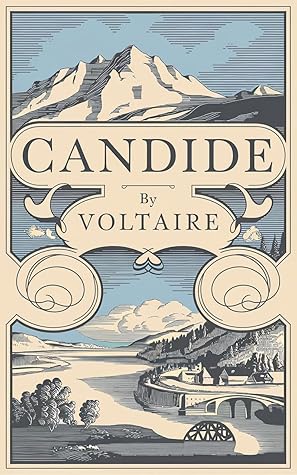More on this book
Community
Kindle Notes & Highlights
"Alas!" said the other, "it was love; love, the comfort of the human species, the preserver of the universe, the soul of all sensible beings, love, tender love."
"If this is the best of possible worlds, what then are the others?
Pangloss most cruelly deceived me when he said that everything in the world is for the best.
A hundred times I was upon the point of killing myself; but still I loved life. This ridiculous foible is perhaps one of our most fatal characteristics; for is there anything more absurd than to wish to carry continually a burden which one can always throw down? to detest existence and yet to cling to one's existence? in brief, to caress the serpent which devours us, till he has eaten our very heart?
mankind are so fond of roving, of making a figure in their own country, and of boasting of what they have seen in their travels,
"My friend, you see how perishable are the riches of this world; there is nothing solid but virtue, and the happiness of seeing Cunegonde once more."
"Alas!" said Candide, "it is the madness of maintaining that everything is right when it is wrong."
"Surely you must be possessed by the devil," said Candide. "He is so deeply concerned in the affairs of this world," answered Martin, "that he may very well be in me, as well as in everybody else; but I own to you that when I cast an eye on this globe, or rather on this little ball, I cannot help thinking that God has abandoned it to some malignant being.
"You see," said Candide to Martin, "that crime is sometimes punished. This rogue of a Dutch skipper has met with the fate he deserved." "Yes," said Martin; "but why should the passengers be doomed also to destruction? God has punished the knave, and the devil has drowned the rest."
"But for what end, then, has this world been formed?" said Candide. "To plague us to death," answered Martin.
"But is there not a pleasure," said Candide, "in criticising everything, in pointing out faults where others see nothing but beauties?" "That is to say," replied Martin, "that there is some pleasure in having no pleasure."
'My dear, how could you take it into your head to dissect a heretic? Do you not know that these people always have the devil in their bodies?
Martin especially concluded that man was born to live either in a state of distracting inquietude or of lethargic disgust.
"Let us work," said Martin, "without disputing; it is the only way to render life tolerable."


